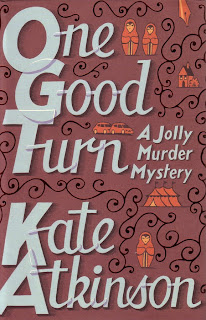We usually
spend a week or so at the beach over New Year, and there are always piles of
books lying around, in various stages of being read by various people. (You
have to keep a close eye on your own book if you don't want it to disappear
into someone else's hands - although several people this year had their own Kindles
or e-readers, which lessened competition a bit.)
I didn't
read many books, because I was ploughing though one that was over 600
pgs long (no, not The luminaries): Iron curtain - the crushing of Eastern Europe by Anne Applebaum. It was a Christmas
present and the blurb on the back cover claimed it was chosen 16 times as a
Book of the Year - actually, that could mean anything, but I dipped into it and
then got hooked by realising how little I knew about the subject, and how much
made sense afterwards.

It's scary really how much we skate over the surface of current
or historical events with only a vague idea of what happened or is happening. I
didn't even have a clear idea of how or when the area we call "Eastern Europe"
developed into that eastern bloc, or what it meant for the people who lived there.
We often think of the end of World War Two as a time of "liberation"
for countries that were occupied, but for millions of people in Eastern Europe,
the end of the war signalled the start of something almost as bad, or even
worse. Anne Appelbaum tackles the subject both historically but also thematically,
so there are chapters on, for example, "Reluctant collaborators" and
"Passive opponents" - about
the situations that ordinary people found themselves in, and the moral decisions
they had to make about how they would behave.
We also covered
a lot of kilometres this summer, so before we set off I borrowed five audio
books from the Central Library. It cost $15, but was well worth it. We got
through all 12 disks of Kate Atkinson's One
good turn : a jolly murder mystery.

I'd already read One good turn once, if not twice, but it was a joy to listen to,
and I was surprised to remember what a different experience it was from reading
in private. Kate Atkinson is so clever and witty that some of her sentences
just make you laugh out loud. Listening to the story being read also makes more
obvious the way that words, phrases and themes keep repeating and echoing
each other - just like the sets of Russian dolls that keep appearing. And when
you are taking out and replacing disks, you get a sense of the passage of time
in the book, because it's fascinating how little actually happens in the beginning
disks, compared to how much you think is happening (because Kate Atkinson is constantly
dipping in and out of different characters' heads, which gives you a richer
sense of their lives.)
Monica
Ali's Untold story was also very
entertaining, and we got through about 4
disks but will have to finish it on paper. Interestingly, the collection of stories
by Neil Gaiman wasn't nearly as successful, just because it was harder to make
out his words. The other books are narrated by professional actors and they
were perfectly clear and easy to follow. We'll certainly trawl through the library
shelves again next time we are setting off on a long drive.
Summer listening also includes catching odd bits
of interviews on National Radio, and coming home to replay them on the Radio NZ
website. Wonderful interview here with Marcus Zusak, author of The book thief, who has some great things to say about writing
, even if he sounds
disconcertingly
Australian
.
I liked how he talked about the way that readers respond to a story that means
everything
to the writer. I liked this: "It took 14 years or even longer of writing, and previous books as well, for me to get to the point where I could write The book thief." I loved the way he talked
about his childhood and
how his first research for
the book had been listening to his parents, who were teaching him how to write by telling
him their
stories (like "a little piece of Europe
that came into our house".)
He also had a great description of writing
a book, comparing it to building a brick wall: "you don't want
to put in too many bricks, you don't want too many gaps but you want every brick
to be necessary."



